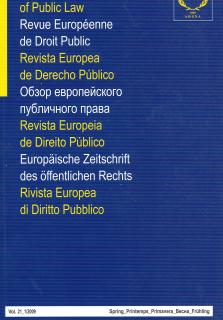
Administration without Frontiers?
European Migration Law
Poland
Monika Florczak-Wątor
Jagiellonian University, Kraków
In Poland the basic sources of data concerning migration are statistics of the Border Guards, the Central Statistical Office and the Office for Repatriation and Foreigners. Some information on migration is provided also by the Refugee Council, the voivode and the other institutions. According to those official data, the number of legal immigrants in Poland is still relatively small (about 200.000 foreigners in 2006). The Polish Constitution of 1997 encompassed some basic provisions related to migration policy such as the right to leave the country, the right to asylum and refugee status, the basic rules regarding the obtaining of Polish citizenship and the right of persons of Polish origin to settle in Poland. The legal regulation of migration issues is based on the principle of national treatment of foreigners. Exemptions from this principle should be specified by statute. An important criterion that determines the scope of rights of foreigners is residence. There are fundamental rights and freedoms that are granted to everyone but some rights by their very nature are granted only to persons residing in Poland. This claim is especially valid for social rights. Aliens residing and staying in the Polish territory on the basis of a settlement permit, a long-term resident’s EC residence permit, a residence permit, a permit for tolerated stay or the refugee status as well as the citizens of an EU (or EFTA) Member State enjoy, on equal terms with the Polish citizens, access to social assistance and family benefits. They also enjoy the freedom to choose and to pursue their occupation while the others need the permission of the voivode labour office issued after taking into consideration the situation on the local labour market. Poland incorporated into its legislation the special privileged status of EU citizens resulting from the EU regulation in the area of free movement of persons. Non-EU foreigners mostly need a visa to cross the border and stay on the Polish territory. There are five forms of protection which could be granted to foreigners: refugee status, asylum, temporary protection, supplementary protection and the permit for tolerated stay. A victim of trafficking in human beings may receive a stay visa and has a right to social assistance.





















